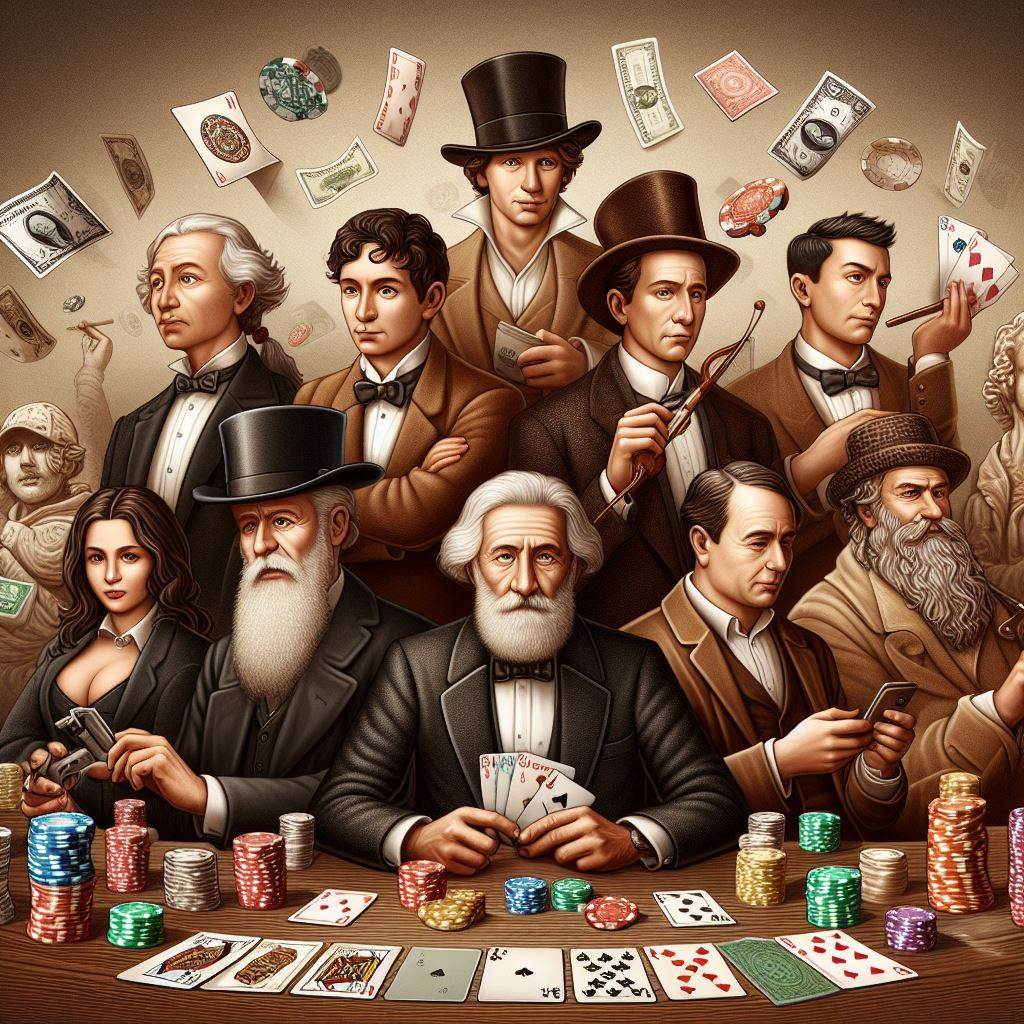Poker, a game that intertwines skill, strategy, and a hint of luck, has long held a revered place in the annals of casino history. Its journey from the smoky backrooms of 19th-century saloons to the dazzling digital platforms of today’s online world is a testament to its enduring appeal and adaptability. This exploration of the evolution of casino poker reveals how the game has grown, adapted, and thrived, influenced by cultural shifts, technological advancements, and changing trends.
The Humble Beginnings
The origins of poker are somewhat murky, with various forms of the game appearing in different cultures throughout history. However, the version of poker that laid the groundwork for today’s game began to take shape in the United States in the early 19th century. Initially played in the riverboats that traversed the Mississippi River, poker was a game of frontier towns and Civil War camps, a pastime that brought together people from all walks of life.
Poker’s Golden Age
The 20th century marked the golden age of casino poker, particularly in the neon-lit desert oasis of Las Vegas. The World Series of Poker (WSOP), established in 1970, played a pivotal role in catapulting poker into the global consciousness. The annual tournament turned poker into a competitive sport, attracting players worldwide and elevating poker champions to celebrity status. This era also saw the introduction of Texas Hold’em, which would eventually become the most popular poker variant globally, known for its strategic depth and accessibility.
The Digital Revolution
The advent of the internet and, subsequently, online poker, transformed the game in ways that were unimaginable during its riverboat days. The late 1990s and early 2000s saw a surge in online poker platforms, making the game accessible to a global audience. This digital revolution democratized poker, breaking down barriers to entry and creating a new generation of players. The 2003 WSOP victory of Chris Moneymaker, an amateur who qualified through an online tournament, underscored the changing landscape of poker, where anyone with internet access could compete at the highest levels.
Cultural Shifts and the Poker Boom
The early 2000s witnessed what is often referred to as the “poker boom,” a period of exponential growth in the game’s popularity, fueled by televised tournaments and the rise of online gaming. Poker became ingrained in popular culture, with movies, books, and TV shows dedicated to the drama and allure of the game. This era also saw a significant shift in the demographic of poker players, with more young people and women entering the scene, challenging the stereotypes of the traditional poker player.
The Modern Era and Future Trends
Today, casino poker continues to evolve, with online platforms leading the charge in innovation. The integration of technology, such as artificial intelligence and blockchain, is shaping the future of online poker, offering new levels of security, fairness, and engagement. Live streaming and social media have also played a role in keeping the poker community connected, allowing fans to follow tournaments and their favorite players in real-time.
Furthermore, the legalization and regulation of online poker in various jurisdictions around the world are opening new markets and opportunities for growth. At the same time, the allure of live poker remains strong, with major tournaments like the WSOP still drawing thousands of players to Las Vegas each year.
Conclusion
The evolution of casino poker from a humble card game to a global phenomenon reflects broader cultural, technological, and social shifts. As the game continues to adapt to the changing landscape, its essence remains unchanged—a test of skill, psychology, and strategy. Whether played around a felt table in a bustling casino or on a digital platform spanning continents, poker remains a beloved pastime, a competitive sport, and a vibrant part of global culture. As we look to the future, one thing is clear: the story of poker is far from over, and its next chapters promise to be as compelling as those that have come before.


